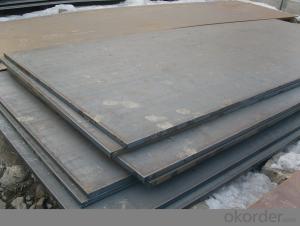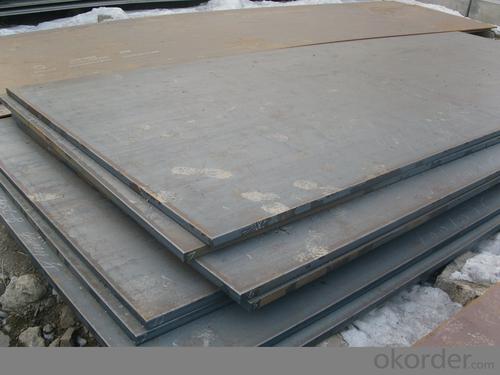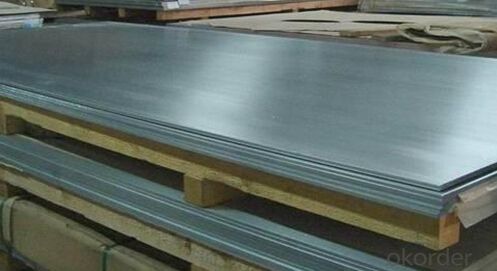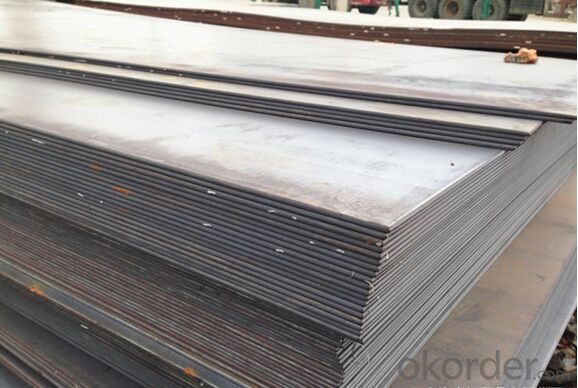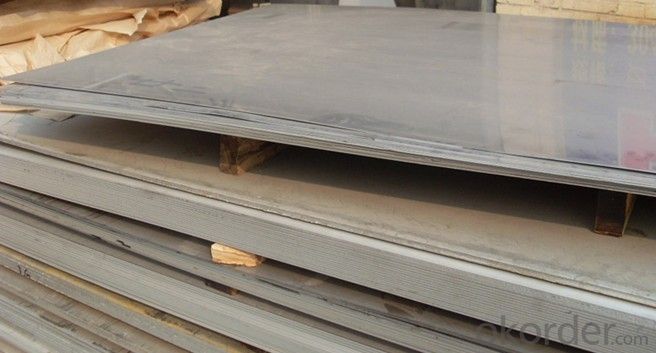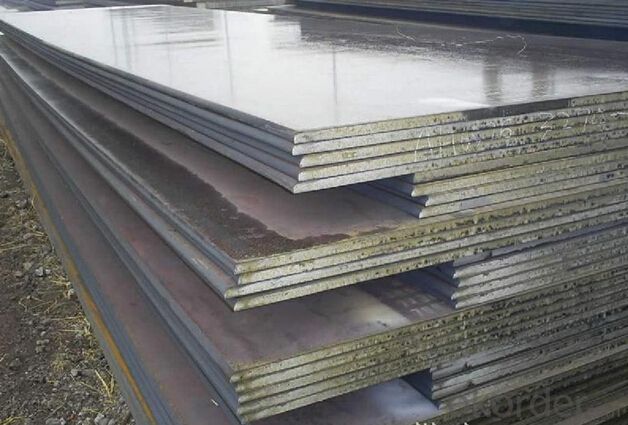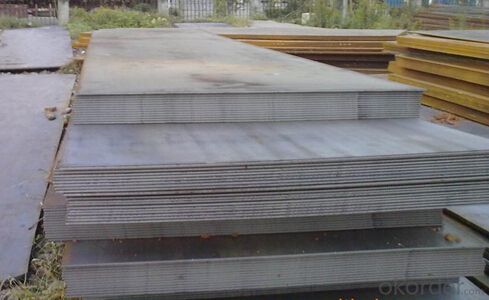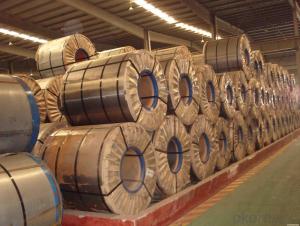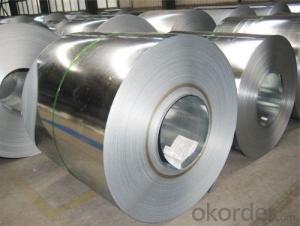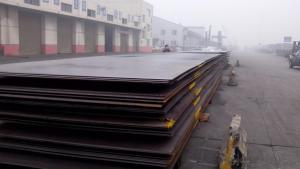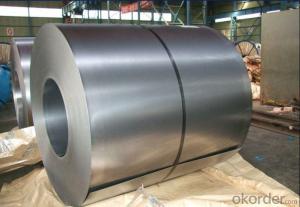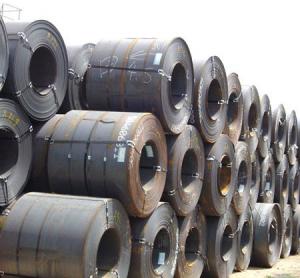Grade 65Mn Ship Plate Coil Hot Rolled Steel
- Loading Port:
- Tianjin
- Payment Terms:
- TT OR LC
- Min Order Qty:
- 3 m.t.
- Supply Capability:
- 100000 m.t./month
OKorder Service Pledge
OKorder Financial Service
You Might Also Like
Specification
Grade 65Mn Ship Plate Coil Hot Rolled Steel
Detailed Information of Grade 65Mn Ship Plate Coil Hot Rolled Steel
| C | Si | P | S | yield Strength MAp | Tensile strength MAp | Elongation % | ||
| A36 | 0.24 | 0.4 | 0.045 | 0.03 | 250 | 400-520 | 26 | |
| C | Si | Mn | P | S | Cu | |||
| A283 | ≤0.27 | 0.15-0.4 | ≤0.9 | ≤0.035 | ≤0.04 | ≥0.2 | ||
| Thickness: | 6mm, 8mm, 12mm, 16mm, 20mm, 25mm, 30mm, 50mm, 80mm, 100mm, 150mm, 200mm | |||||||
| Width: | 1500mm, 1800mm, 2000mm, 2200mm, 2500mm | |||||||
| Length: | 6000mm, 8000m, can cut to width and length | |||||||
| Packing Details; | according to customer‘s require or export’s standard | |||||||
| Delivery time; | 7 days for stock sizes, 20-25 days for new production sizes | |||||||
| Port: | Tianjin China | |||||||
Related Products Overviews of Grade 65Mn Ship Plate Coil Hot Rolled Steel
Product Name | Typical Grades | Diameter(mm) | Standard Adopted |
Carbon Steel | 20 (1020/S20C/C22) |
Ø16-Ø300 |
GB/SAE/ JIS/DIN |
40 (1040/S40C/C40) | |||
45 (1045/S45C/C45) | |||
Bearing Steel | GCr9 (51100/SUJ1) |
Ø12-Ø250 | |
GCr15 (52100/SUJ2/100Gr6) | |||
GCr9SiMn (A485-Gr.1/SUJ3) | |||
Cr-Mo Steel | 20Cr (5120/SCr420H/20Cr4) |
Ø12-Ø250 | |
40Cr (5140/SCr440/41Cr4) | |||
42CrMo(4140/SCM440/42CrMo4) | |||
Gear Steel | 20CrNiMo |
Ø16-Ø600 | |
20CrMn(5115/SMnC420/20MnCr5) | |||
20CrNiMo(8620/SNCM220/20CrMiMo2) |
Related Products Application of Grade 65Mn Ship Plate Coil Hot Rolled Steel
Carbon Steel | l Mold bottom l Plastic mold l Construction machinery parts l Automobile parts l Security grills l Screens l Construction |
Bearing Steel | l Aerospace l Navigation l Nuclear energy l Chemical industry l Electronic information l Petrochemical l Instrument and meter l Transportation |
Cr-Mo Steel | l Mechanism & Fasteners gear l Stressed components for vehicles l Engines and machines l Parts of larger cross-section |
Gear Steel | l All kinds of gears l Statically and dynamically stressed component for vehicles l Engines and machine l Larger cross-section parts l Crankshafts |
Company Introduction of Grade 65Mn Ship Plate Coil Hot Rolled Steel
CNBM International Corporation is the most import and export platform of CNBM group(China National Building Material Group Corporation) ,which is a state-owned enterprise, ranked in 270th of Fortune Global 500 in 2015.
With its advantages, CNBM International are mainly concentrate on Cement, Glass, Iron and Steel, Ceramics industries and devotes herself for supplying high quality series of refractories as well as technical consultancies and logistics solution.
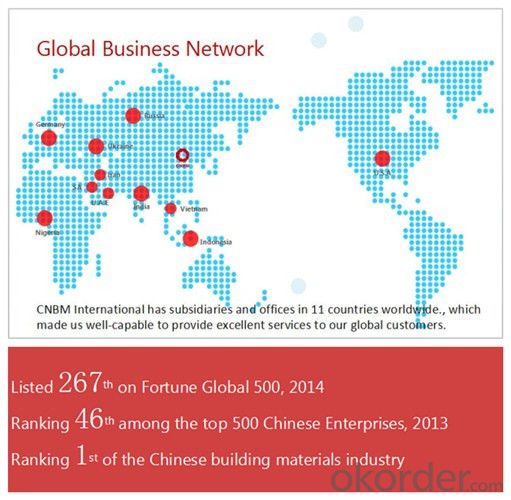
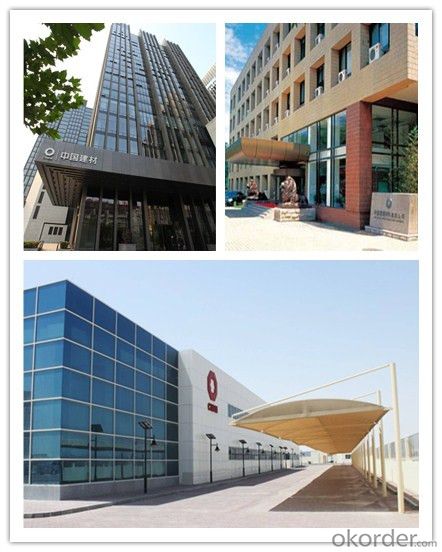
After-sale service | l CNBM provides the services and support you need for every step of our cooperation. We’re the business partners you can trust; you can relax and get on with doing business. l For any problem, please kindly contact us at any your convenient time, we’ll reply you in our first priority within 24 hours
|
Advantages
| l Industry experience over 20 years. l Shipment of goods -More than 70 countries worldwide. l The most convenient transport and prompt delivery. l Competitive price with best service. l High technical production line with top quality products. l High reputation based on best quality products.
|
Packaging & Delivery of Grade 65Mn Ship Plate Coil Hot Rolled Steel
Packaging Detail | Sea worthy packing /as per customer's packing instruction |
Delivery Detail | 15 ~ 40 days after receiving the deposit |
Products Show
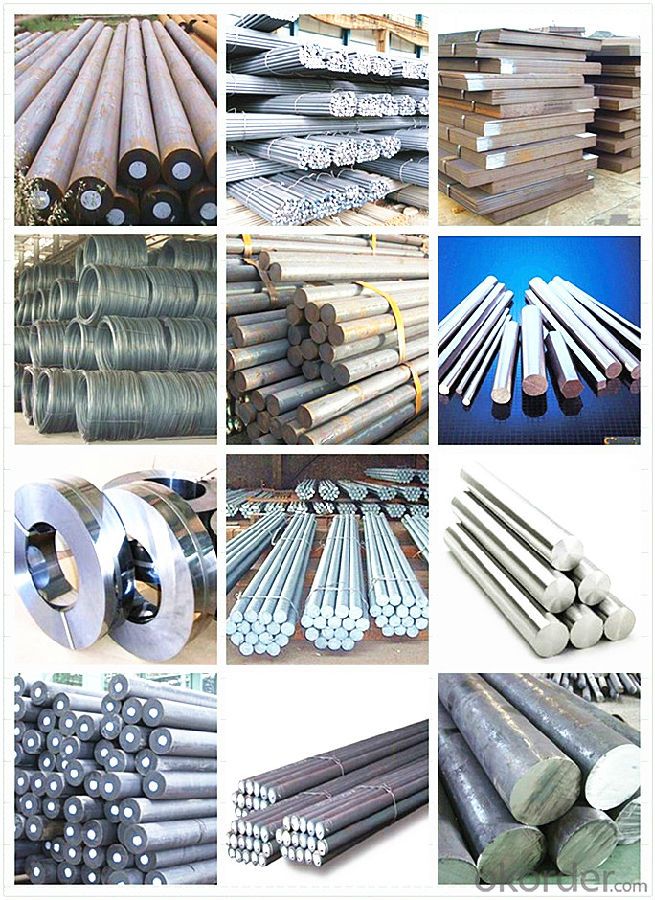
FAQ:
Are you a trading company or manufacturer? | Manufacturer |
What’s the MOQ? | 3 metric ton |
What’s your delivery time? | 15-35 days after downpayment received |
Do you Accept OEM service? | Yes |
what’s your delivery terms? | FOB/CFR/CIF |
What's the Payment Terms? | 30% as deposit,70% before shipment by T/T |
Western Union acceptable for small amount. | |
L/C acceptable for large amount. | |
Scrow ,Paybal,Alipay are also ok | |
Why choose us? | Chose happens because of quality, then price, We can give you both. Additionally, we can also offer professional products inquiry, products knowledge train (for agents), smooth goods delivery, excellent customer solution proposals. |
What's your available port of Shipment? | Main Port, China |
What’s your featured services? | Our service formula: good quality+ good price+ good service=customer's trust
|
Where are your Market? | Covering more than 160 countries in the world |
- Q: How does special steel perform in terms of electrical resistivity?
- Special steel typically has higher electrical resistivity compared to other types of steel. This means that it offers greater resistance to the flow of electric current, making it less conductive.
- Q: What are the advantages of using special steel in manufacturing?
- There are several advantages of using special steel in manufacturing. Firstly, special steel offers a higher level of strength and durability compared to regular steel. This is due to the presence of various alloying elements such as chromium, nickel, and manganese, which enhance the material's mechanical properties. As a result, special steel can withstand heavy loads, resist wear and tear, and endure extreme conditions, making it an ideal choice for manufacturing applications that require high strength and longevity. Secondly, special steel provides excellent corrosion resistance. The addition of alloying elements like chromium forms a protective oxide layer on the surface of the steel, preventing it from rusting or corroding when exposed to moisture or harsh environments. This corrosion resistance is crucial in industries such as marine, automotive, and construction, where the materials are constantly exposed to water, salt, and chemicals. Furthermore, special steel offers exceptional heat resistance and heat transfer properties. These properties are crucial in manufacturing processes that involve high temperatures, such as forging, casting, and heat treatment. Special steel can retain its strength and structural integrity even at elevated temperatures, allowing manufacturers to produce components that need to withstand extreme heat conditions. Another advantage of using special steel in manufacturing is its versatility. Special steel can be easily customized and tailored to meet specific requirements. It can be modified to exhibit various mechanical properties, such as hardness, toughness, or flexibility, depending on the application. This flexibility allows manufacturers to develop components with precise characteristics, ensuring optimal performance and efficiency. Lastly, special steel is often more cost-effective in the long run. Although the initial costs of special steel may be higher than regular steel, its superior durability and longevity result in reduced maintenance and replacement costs. Additionally, the enhanced properties of special steel can lead to improved energy efficiency and reduced material waste, contributing to overall cost savings in the manufacturing process. In conclusion, the advantages of using special steel in manufacturing include increased strength and durability, excellent corrosion resistance, superior heat resistance, versatility, and long-term cost-effectiveness. These benefits make special steel a preferred choice for various industries, ensuring the production of high-quality and reliable components.
- Q: How is structural steel used in building construction?
- Structural steel is extensively used in building construction due to its high strength and versatility. It serves as the primary framework for buildings, providing support and stability. The steel beams and columns are used to create the skeleton of the structure, spanning large distances and allowing for open floor plans. Additionally, steel is used for various other elements such as stairs, handrails, and roof trusses. Its durability, fire resistance, and ability to withstand extreme weather conditions make it an ideal material for constructing high-rise buildings, industrial facilities, and bridges.
- Q: What are the properties of structural steel?
- Structural steel possesses various properties that make it ideal for construction purposes. It has high strength-to-weight ratio, meaning it can support heavy loads while being relatively lightweight. Steel is also ductile, allowing it to be easily shaped and formed into various structural elements. Additionally, it exhibits excellent durability and resistance to corrosion, making it suitable for long-lasting structures. Moreover, structural steel is fire-resistant, providing enhanced safety in case of a fire. Overall, these properties make structural steel a highly versatile and reliable material in the construction industry.
- Q: What are the different methods of surface carburizing for special steel?
- Surface carburizing is a heat treatment process used to increase the carbon content at the surface of steel, resulting in a hardened outer layer. There are several methods of surface carburizing for special steel, each with its own advantages and disadvantages. 1. Gas Carburizing: This method involves exposing the steel to a carbon-rich gas, such as methane or propane, at elevated temperatures. The gas reacts with the steel surface, depositing carbon and forming a hardened layer. Gas carburizing is a widely used method due to its versatility, controllability, and ability to produce uniform and deep case depths. However, it requires specialized equipment and longer processing times. 2. Pack Carburizing: In this method, the steel is packed in a container with a carbon-rich material, such as charcoal or carbon powder. The container is then heated to high temperatures, allowing carbon to diffuse into the steel surface. Pack carburizing is a cost-effective method, but it is relatively slower and less controllable compared to gas carburizing. 3. Liquid Carburizing: Also known as cyaniding, this method involves immersing the steel in a liquid bath containing a carbon-rich compound, such as sodium cyanide. The bath is heated to high temperatures, which enables carbon diffusion into the surface of the steel. Liquid carburizing is a fast and cost-effective method, but it requires careful handling of toxic chemicals and may result in lower case depths compared to other methods. 4. Plasma Carburizing: This method utilizes a plasma discharge to provide a carbon-rich atmosphere around the steel surface. The plasma contains hydrocarbons, which dissociate into carbon atoms that diffuse into the steel. Plasma carburizing offers precise control over case depth and can achieve high surface hardness. However, it requires specialized equipment and is generally more expensive than other methods. 5. Salt Bath Carburizing: In this method, the steel is immersed in a molten salt bath containing carbon-rich compounds. The salt bath is heated to high temperatures, allowing carbon to diffuse into the steel surface. Salt bath carburizing is a versatile method that can achieve high case depths and excellent surface hardness. However, it requires careful temperature control and can be challenging to remove the salt residues after the process. It is important to select the appropriate method of surface carburizing based on the specific requirements of the special steel, such as desired case depth, hardness, and cost considerations.
- Q: What are the main factors affecting the heat resistance of special steel?
- The main factors affecting the heat resistance of special steel include its composition, microstructure, and processing techniques. The composition of the steel, particularly the presence of alloying elements such as chromium, nickel, and molybdenum, can greatly influence its ability to withstand high temperatures. Additionally, the microstructure of the steel, which is determined by factors like heat treatment and grain size, plays a significant role in its heat resistance. Finally, the processing techniques used during the manufacturing of the steel, such as forging or casting, can also impact its ability to withstand heat.
- Q: What are the different forging techniques for special steel parts?
- There are several different forging techniques that can be used to produce special steel parts, depending on the desired shape, size, and properties of the final product. Some of the commonly used forging techniques for special steel parts include: 1. Open-die forging: This technique involves shaping the metal between flat dies or anvils. It is typically used for simpler shapes and allows for flexibility in producing a wide range of sizes. 2. Closed-die forging: Also known as impression-die forging, this technique involves shaping the metal within a closed die, which contains the desired shape and allows for higher precision. Closed-die forging is commonly used for producing complex and intricate shapes. 3. Upset forging: In this technique, the metal is compressed and shaped by applying pressure to the ends of the workpiece. Upset forging is often used to create parts with increased diameter or reduced length, such as bolts and nails. 4. Ring rolling: This technique involves shaping a cylindrical workpiece by applying pressure from rotating rolls. It is commonly used for producing seamless rings with enhanced strength and durability, such as gears, bearings, and flanges. 5. Isothermal forging: This technique involves forging the metal at a constant temperature, usually within a specially designed furnace. Isothermal forging allows for precise control over the metallurgical properties of the final product, resulting in improved mechanical properties and reduced residual stress. 6. Precision forging: Also known as near-net-shape forging, precision forging uses specially designed dies to produce parts with minimal finishing operations. It is commonly used for complex shapes and high-volume production, ensuring cost-effectiveness and dimensional accuracy. 7. Press forging: In this technique, the metal is shaped by applying pressure through a mechanical or hydraulic press. Press forging allows for precise control over the forging process and is often used for producing high-strength, large-sized components. Each of these forging techniques offers unique advantages and is suitable for different applications. The selection of the appropriate forging technique for special steel parts depends on factors such as the desired shape, size, strength, and cost-effectiveness of the final product.
- Q: What are the different methods of preventing hydrogen-induced cracking in special steel?
- There are several methods that can be employed to prevent hydrogen-induced cracking in special steel: 1. Preheating: By preheating the steel before welding or any other high-temperature process, the risk of hydrogen-induced cracking can be reduced. Preheating helps in reducing the cooling rate of the steel, allowing hydrogen to diffuse out before it can cause cracking. 2. Heat treatment: Applying specific heat treatment processes like stress relieving or post-weld heat treatment can help alleviate hydrogen-induced cracking. These processes help in reducing residual stresses and promoting hydrogen diffusion, minimizing the risk of cracking. 3. Material selection: Choosing steel alloys with a higher resistance to hydrogen-induced cracking can be an effective preventive measure. Certain steel compositions, such as low carbon or low alloy steels, are less susceptible to cracking in the presence of hydrogen. 4. Hydrogen control during welding: Implementing techniques to minimize the introduction of hydrogen during welding is crucial. This can be achieved through the use of low-hydrogen welding consumables, such as low-hydrogen electrodes, and ensuring proper shielding gas coverage to prevent atmospheric moisture from contaminating the weld. 5. Stress management: Controlling the welding or operational stresses on the steel is important to prevent cracking. This can be achieved by using proper welding techniques, such as avoiding excessive heat input or rapid cooling rates, as well as minimizing the introduction of tensile stresses during welding. 6. Coating or surface protection: Applying protective coatings or surface treatments to the steel can act as a barrier against hydrogen absorption. These coatings can provide an additional layer of protection, reducing the risk of hydrogen-induced cracking. 7. Welding process optimization: Optimizing the welding parameters, such as current, voltage, and travel speed, can help reduce the risk of hydrogen-induced cracking. By adjusting these parameters, the heat input and cooling rate can be controlled, minimizing the potential for hydrogen absorption and subsequent cracking. It is important to note that a combination of these preventive measures is often necessary to effectively mitigate the risk of hydrogen-induced cracking in special steel. Additionally, proper inspection and quality control procedures should be implemented to ensure the integrity of the steel and detect any cracks or defects.
- Q: What are the challenges in machining special steel with high hardness?
- One of the main challenges in machining special steel with high hardness is the increased tool wear. Due to the hardness of the steel, the cutting tools used in the machining process wear out more quickly, leading to shorter tool life and increased tool replacement costs. Additionally, the high hardness of the steel makes it more difficult to achieve accurate and precise machining, as it requires higher cutting forces and can cause issues such as tool chipping or breakage. Specialized machining techniques and tools are often required to overcome these challenges and ensure successful machining of high hardness steel.
- Q: How does special steel perform in aerospace applications?
- Due to its exceptional performance and unique properties, special steel finds extensive use in aerospace applications. A primary reason for its usage lies in its high strength-to-weight ratio, a crucial factor in the aerospace industry where weight reduction is of utmost importance. Special steel alloys exhibit superior strength, enabling them to withstand the extreme conditions experienced during flight, including high temperatures, vibrations, and pressure changes. Moreover, special steel possesses excellent corrosion resistance, making it an ideal choice for aerospace applications where exposure to moisture and various chemicals is common. Its corrosion resistance ensures the durability and longevity of critical components, resulting in reduced maintenance and replacement costs. Furthermore, special steel offers excellent fatigue resistance, allowing it to endure repeated loading and unloading cycles without deformation or failure. This property is vital in aerospace applications where components must withstand cyclic stresses and maintain their integrity for extended periods. Additionally, special steel alloys can be readily fabricated and machined, facilitating the production of intricate and precise aerospace components. The ease of fabrication ensures efficient manufacturing processes and the ability to create complex designs, which are essential for optimizing performance and aerodynamics. In conclusion, special steel's exceptional strength, corrosion resistance, fatigue resistance, and ease of fabrication make it an invaluable material in aerospace applications. Its utilization in critical components, such as turbine blades, landing gears, and structural elements, guarantees the safety, reliability, and efficiency of aerospace systems.
Send your message to us
Grade 65Mn Ship Plate Coil Hot Rolled Steel
- Loading Port:
- Tianjin
- Payment Terms:
- TT OR LC
- Min Order Qty:
- 3 m.t.
- Supply Capability:
- 100000 m.t./month
OKorder Service Pledge
OKorder Financial Service
Similar products
Hot products
Hot Searches
Related keywords
